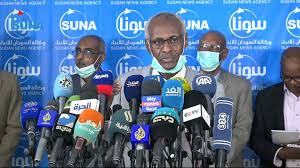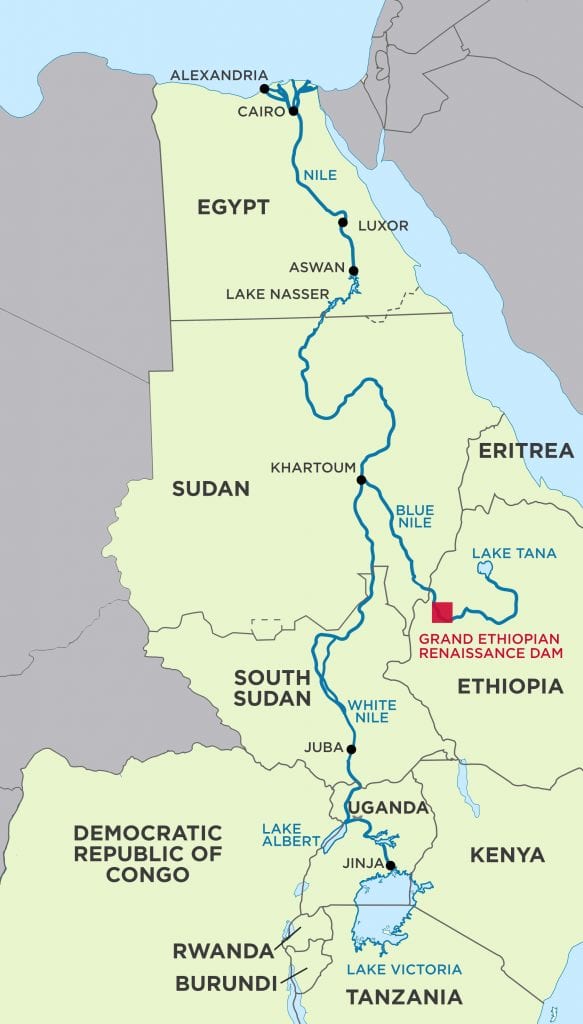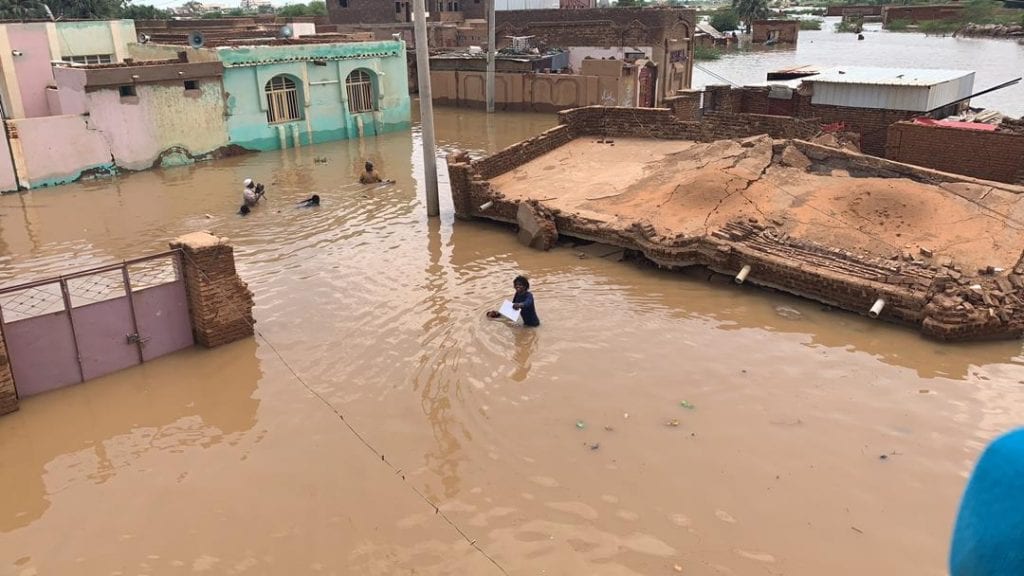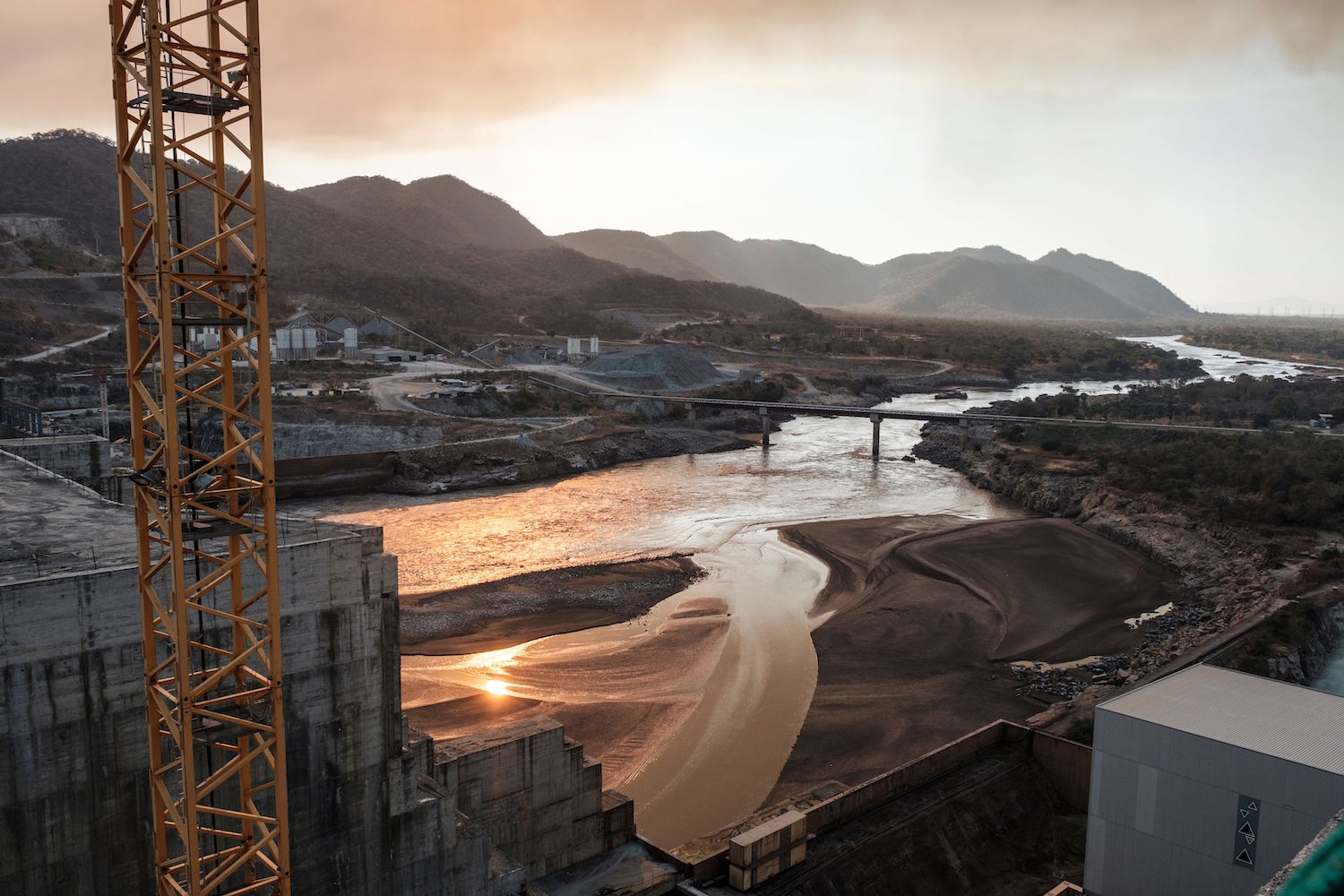One step forward, three steps back in Renaissance Dam talks
12 September 2020
Negotiations between Sudan, Ethiopia and Egypt over the contentious Grand Ethiopian Renaissance Dam (GERD) are set to continue under the auspices of the African Union, according to the head of Sudan’s negotiating team, Dr Salih Hamad. A deal is far from set, however, as the last round of talks took many steps backwards, ending any gains made in previous discussions.

The last round of negotiations in August between the three countries over GERD ended without a solution, according to Sudan’s Minister of Water and Irrigation, Professor Yasser Abbas. The minister explained that experts were unable to merge the three drafts submitted by each state within the 10-day negotiations set by the African Union. In a press conference, Prof. Abbas said the Egyptian and Ethiopian sides had shown regression towards reaching an agreement, changing views they had previously agreed upon.
“The negotiations went many steps back in this round. At the beginning of the round, the two other countries insisted on negotiating a compiled document of the three countries’ proposals. Sudan opposed this approach as it was tried before and proved to be a complete failure before moving the negotiations to Washington”, Dr Salih Hamad, the head of Sudanese Negotiating team told Ayin. By insisting on three separate proposals, “every single word starting from the agreement title was now under negotiation.” Instead, Dr Hamad explained, Sudan wanted the three countries to focus and negotiate on the outstanding issues, “leaving the coding and wording for a designated committee.”
Caught in the Middle
Hopes for the African Union meditation to bring positive results were dashed by the obdurate stances of Ethiopia and Egypt, says Dr Kamal-Eldein Bashar, an expert in water and irrigation.
“The last round of negotiation with the mediation of the AU was expected to have positive results, but the lack of flexibility led to a dead-end. Ethiopia wants all their demands to be fulfilled while Egypt is unwilling to compromise,” Dr Bashar said.
Over time, as both Egypt and Ethiopia escalated the dispute via the press, Sudan was accused of favouring one side over the other. Dr Kamal explains that Sudan should not take sides; it should prioritize its own national benefits and focus on the safety and operation of the dam as it is the first to be affected; “Egypt wants to take the bigger share of water, and Ethiopia want the full liberty to use their water resources, and the two sides are wrong. They should compromise for a mutual benefit.”
Recently Ethiopia took two unilateral dam-related decisions that are considered violations to their negotiating teams’ previously agreed principles and international law, Dr Hamad said. All three countries signed a Declaration of Principles in March 2015 in Khartoum.

Neither Sudan nor Egypt appreciated Ethiopia’s unilateral decision to start filling the dam without notification. The three countries had previously agreed to store the first 4.9 Billion cubic meters in July and August, but Ethiopia opened the dam’s gates to store the entire quantity in one week in July. “As a result of this, there was a sudden drop in water levels all the way downstream the Blue Nile, causing many drinking water stations to go out of service, including those inside the capital Khartoum,” Dr Hamad told Ayin. “Millions of people suffered from this action.” Misunderstandings continued after the Ethiopian minister of water and electricity issued a letter on 4 August stating that the country would not negotiate over the dam’s operations despite agreeing to adhere to a consultative process in the signed declaration of principles. “This delayed negotiations for a week until Ethiopia finally agreed to abide by the declaration of principles,” Hamad added.
But Ethiopia is not the only offender, says water expert and researcher Sami Mohamed Ahmed. Apparently Egypt also violated the Declaration of Principles by seeking mediation from the United States without consulting the other parties. At this stage, it is crucial for both Ethiopia and Egypt to compromise. “Smart cooperation and collaboration must be the goal without one country wanting to have the bigger share or violate international standards”, Mohamed said.
Although not considered part of the GERD negotiations, water sharing represents a central area of contention between the three countries. As it stands, Ethiopia does not recognise the 1959 agreement while Sudan declared the 1929 agreement void in July 1957.
The first agreement accrued during English-Egyptian rule in Sudan allowing Sudan only 4 million cubic metres (cm). After independence, Sudan renegotiated to have 18 million cm while Egypt took 55. “Those agreements were very harmful to sustainable development and agriculture in Sudan, it was very unjust,” says Mohamed, adding that any agreement that harms future generations is refused.
The Way Forward

As Sudan experiences unprecedented floods, the lack of clarity in the GERD negotiations is a cause for concern, especially for those residing near dams. “Dam security and operation are two important issues that must be addressed with the participation of all three states,” Dr Bashar said, adding that the lack of engagement over GERD operations could affect many dams in Sudan. The Renaissance Dam is only 100 kilometres from Roseires Dam, Mohamed says, and could easily be affected if GERD’s operations are not mutually agreed upon.
Fears over GERD affecting current flood levels in Sudan, however, are unwarranted, Minister Abbas said at a press conference last week. According to the minister, GERD would actually protect Sudan against future flooding once fully operational; another reason the negotiation deadlock needs to be resolved. Over 100 people have died in the devastating floods with over 60,000 people rendered homeless, the UN reported.
Sudan’s water minister believes only the three countries’ political leaders can break this deadlock. Legal and technical considerations persist, such as filling during droughts, the compulsion of the agreement and its impact on future projects.
“The remaining points are technical and legal issues, but as you know, the legal issues have political implications,” Sudan’s chief negotiator told Ayin. “That is why our minister declared that these issues need political commitment.” As it stands, all three countries now look to the African Union for intervention, to give the negotiation process the political impetus to conclude this thorny but crucial agreement.


